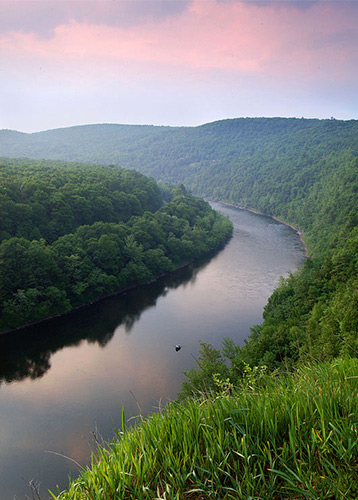Commerical Forest Logging in New Jersey
The forests of the Delaware River Watershed are under constant threat. The important natural benefits of intact and healthy forests to the Watershed are recognized by scientists, agencies,wildlife and outdoor enthusiasts, and the general public who have invested heavily in their protection. The New Jersey Legislature passed S1085/A2837 that would allow commercial logging in State forests in June 2013 despite strong public opposition. We are asking Governor Chris Christie to veto the Logging Bill.
Whether seen as an important and irreplaceable filter that cleans our water and air, as a key carbon sequester that helps combat global warming and climate change, as a home to flora and fauna, an economic amenity due to their intrinsic value or valued for any of the many environmental and social benefits that forests provide, forests are truly our protector and, in turn, they need our protection.
Many threats to our forests require daily battle such as the removal of invasive species and protection from degradation by human activity. One such threat is logging of our public forests that is being promoted by legislation in New Jersey, S1085/A2837. The Assembly passed the bill by a slim margin, sending the legislation to the Governor’s desk. A coalition of environmental groups has asked the Governor to veto the bill which would allow commercial logging on public lands. If signed, the legislation would open up some of the most environmentally sensitive areas in our state to logging. The bill requires that a “forest stewardship” plan be prepared for each state park. Organizations are concerned that the bill would hurt our open spaces, biodiversity in our forests, public access, and pristine resources people have worked for decades to protect. Groups have banded together asking the Governor to veto the logging bill for the sake of the State’s forests, the life and natural resources that depend on these healthy forests, and the taxpayers’ investment in preserving them.




